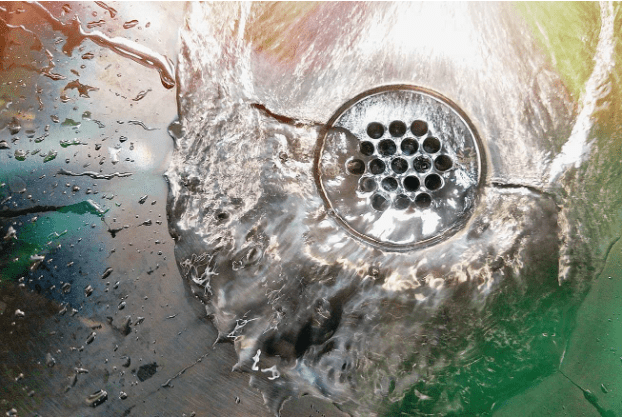Clogged Drains Warning Signs
As a homeowner, you rely on your plumbing system to function properly every day. From washing dishes to taking a shower, your drains play a critical role in keeping your home running smoothly.
However, even with regular maintenance, your drains can become clogged over time due to a buildup of grease, hair, soap scum, and other debris.
When this happens, you may notice slow draining water, unpleasant odors, and even backups. In this blog post, we will explore the signs that indicate you need a drain cleaning by a professional plumber.
By recognizing these signs early on, you can prevent more serious plumbing issues from occurring down the line and keep your home’s plumbing system in top condition.
Slow Draining Water
Slow draining water in plumbing can be caused by various factors. Here are some common reasons:
Clogs: The most common cause of slow drainage is the presence of clogs in the pipes. Accumulation of hair, soap residue, grease, food particles, or other debris can obstruct the flow of water, leading to slow draining. Clogs can occur in sinks, showers, bathtubs, or toilets.
Pipe Blockages: Apart from clogs, there can be other blockages within the plumbing system. These blockages may be caused by tree roots invading the pipes, mineral deposits, or the buildup of sediment over time. Pipe blockages restrict the flow of water and result in slow drainage.
Faulty Venting: Plumbing systems often include vent pipes that allow air to escape, enabling smooth drainage. If the vent pipes become clogged or blocked, it can create negative pressure within the system, causing slow draining. Improper venting can also lead to gurgling sounds or unpleasant odors.
Damaged Pipes: Damaged or deteriorated pipes can impede the flow of water, leading to slow drainage. Cracked, collapsed, or misaligned pipes can occur due to aging, ground movement, extreme temperature changes, or corrosion. These issues disrupt the normal flow and cause drainage problems.
Improper Slope: Proper slope or gradient is necessary for efficient drainage. If the pipes are not installed with the correct slope, water may accumulate instead of flowing freely. Insufficient slope can occur during installation or due to settling of the building’s foundation over time.
Ventilation Issues: In some cases, slow draining water can be attributed to inadequate ventilation in the plumbing system. Proper ventilation helps maintain optimal air pressure, allowing wastewater to flow smoothly. Insufficient ventilation can cause water to back up or drain slowly.
External Factors: Occasionally, slow drainage may be caused by external factors beyond the plumbing system itself. For example, municipal sewer line issues, such as blockages or overflows, can affect multiple properties and result in slow draining water.
To address slow drainage, you may attempt some solutions like using a plunger, utilizing a drain snake or auger. Do not use harsh chemicals or store bought drain cleaners. They do more harm than good.
Unpleasant Odors
Foul odors in plumbing systems can be caused by various issues. Here are some common causes:
- Sewer line problems: Foul odors can occur when there are issues with the main sewer line. This can happen due to blockages, leaks, or damage to the sewer pipes. If the sewer line is compromised, it can release unpleasant smells into your home.
- Dry P-trap: P-traps are curved sections of plumbing pipes designed to hold water, which creates a seal that prevents sewer gases from entering your home. If a fixture, such as a sink or floor drain, is not used frequently, the water in the P-trap can evaporate, breaking the seal and allowing odors to escape.
- Blocked vents: Plumbing systems typically have vent pipes that allow air to enter and exit the drainage system, preventing the buildup of pressure and odors. If these vents become blocked by debris, nests, or other obstructions, it can restrict the airflow and lead to foul smells.
- Clogged or dirty drains: Accumulated debris, hair, grease, and food particles in drains can cause blockages. These blockages can trap organic matter, leading to the growth of bacteria and the production of unpleasant odors.
- Septic tank issues: If you have a septic system, foul odors can arise when the tank is full, the drain field is clogged, or the system is not functioning properly. In such cases, the odors may be more prominent outdoors near the septic tank or drain field.
- Improperly installed plumbing: If plumbing fixtures or pipes are not installed correctly, it can create gaps or leaks in the system. These gaps allow sewer gases to escape and cause foul odors.
- Water heater problems: Sediment buildup in a water heater or anode rod corrosion can result in a rotten egg-like smell. This odor is caused by the reaction of bacteria with the sulfur compounds present in the water.
Also, if you detect a musty or sewage smell in your home, this could be an indicator that there’s something amiss with your drains. Foul smells come from bacteria growing in stagnant water in clogged pipes – this must be addressed quickly before the situation worsens further. If multiple drains emit this foul odor simultaneously, this may signal larger issues with your sewer system.
Look for signs of sewer line clogs by inspecting pools or puddles of stagnant, foul-smelling water on your property. Such areas can become breeding grounds for bacteria that cause illness – Hepatitis A, Salmonella and Shigella are among the many such infections that could emerge here.
Bubbling Water
Bubbling water in plumbing can be caused by a few different factors. Here are some possible reasons:
- Air in the pipes: If air becomes trapped in the plumbing system, it can create bubbles in the water. This often happens when the plumbing system is drained and refilled, or if there’s a leak in the pipes that allows air to enter.
- Water pressure issues: High water pressure can cause the water to flow too quickly through the pipes, leading to turbulence and the formation of bubbles. Conversely, low water pressure may cause air to enter the system, resulting in bubbles.
- Water heater problems: If the water heater is malfunctioning, it can introduce air into the water supply. This can lead to bubbling when the hot water is used.
- Water contamination: Sometimes, the presence of certain gases or chemicals in the water can cause it to bubble. For example, if there is excessive dissolved oxygen or carbon dioxide in the water, it may bubble when it flows through the plumbing system.
- Blockages or obstructions: If there are blockages or obstructions in the pipes, the water flow can become disrupted and turbulent, leading to bubbling. Common culprits include mineral deposits, debris, or pipe damage.
Clogged Drains
Clogged drains are one of the telltale signs that it’s time for professional plumbing assistance to come and clear your pipes. You should also be concerned if you notice your drains taking longer than usual to drain completely. Slow drainage could be indicative of some sort of blockage in the line caused by soap scum, toothpaste residue, hair or debris build-up in the pipes; left unaddressed it can lead to overflowing sinks or toilets, creating both messiness and risk.
An unattended clogged drain can attract pests such as fruit flies and drain flies, who feed off food waste that builds up in your drain line. Flies and other pests are unsightly, can create havoc in your home and pose health risks. To stop them, it is best not to flush cat litter down your toilet and keep any other forms of food waste like potato peels, egg shells or coffee grounds out of your garbage disposal system.
Liquid drain cleaner may seem like an appealing solution, but doing so can actually aggravate your problem and damage pipes in the process. If you notice a clogged drain it’s wiser to contact a professional quickly as this will avoid costly repairs in the future.
In Conclusion
Keeping your drains clean is crucial to maintain a healthy and functional plumbing system. If you notice any of the signs mentioned in this article, it is time to call a professional drain cleaning service. Discount Plumbers in Minneapolis, Minnesota, is a trusted and reliable plumbing company that can help you with all your drain cleaning needs.
Don’t let clogged drains lead to bigger problems; contact Discount Plumbers today to schedule a drain cleaning service. Remember, investing in regular drain maintenance can save you time, money, and stress in the long run.






